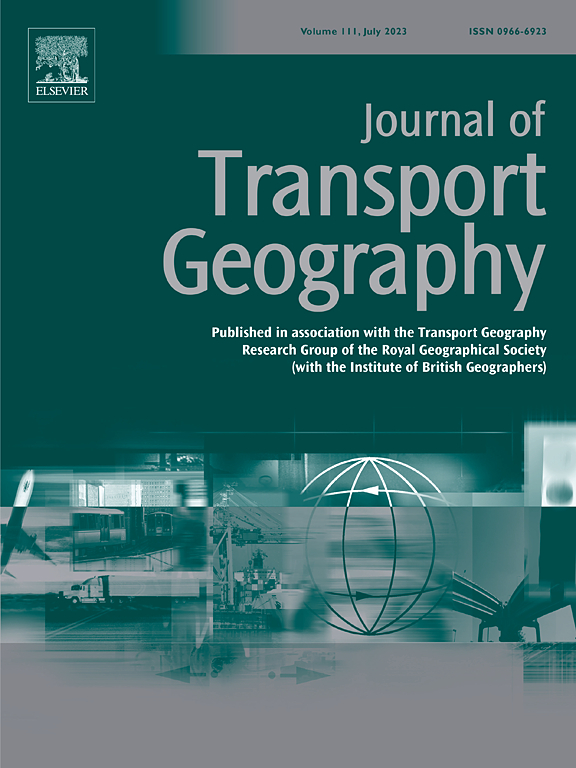Impact of Russia–Ukraine conflict on global crude oil shipping carbon emissions
IF 6.3
2区 工程技术
Q1 ECONOMICS
引用次数: 0
Abstract
Global shipping is a major contributor to carbon emissions and climate change, a dynamic influenced by geopolitical crises. This study examines the impact of the Russia–Ukraine conflict on carbon emissions from global crude oil shipping by analyzing 5.6 billion AIS shipping route records (January 2021–December 2023). The key findings are as follows: (1) One year into the conflict, emissions dropped 5.8 %, transport distances increased by 2.7 %, and shipping volume declined by 9.7 %. (2) Regional disparities emerged: emissions fell in the North Atlantic, Mediterranean, China, and Russia, but rose in the Indian and Pacific Oceans, Europe, the Middle East, and North Africa. (3) Early conflict periods saw volatile emissions, which later stabilized with the establishment of new routes. Regression analysis supports these findings, underscoring the environmental impact of geopolitical conflicts and offering insights for sustainable shipping strategies.
俄乌冲突对全球原油航运碳排放的影响
全球航运业是碳排放和气候变化的主要贡献者,这一动态受到地缘政治危机的影响。本研究通过分析56亿条AIS航线记录(2021年1月至2023年12月),考察了俄罗斯-乌克兰冲突对全球原油航运碳排放的影响。主要发现如下:(1)冲突一年后,排放量下降了5.8%,运输距离增加了2.7%,运输量下降了9.7%。(2)区域差异出现:北大西洋、地中海、中国和俄罗斯的排放量下降,但印度洋和太平洋、欧洲、中东和北非的排放量上升。(3)冲突初期排放量不稳定,后来随着新航线的建立稳定下来。回归分析支持这些发现,强调地缘政治冲突对环境的影响,并为可持续航运战略提供见解。
本文章由计算机程序翻译,如有差异,请以英文原文为准。
求助全文
约1分钟内获得全文
求助全文
来源期刊

Journal of Transport Geography
Multiple-
CiteScore
11.50
自引率
11.50%
发文量
197
期刊介绍:
A major resurgence has occurred in transport geography in the wake of political and policy changes, huge transport infrastructure projects and responses to urban traffic congestion. The Journal of Transport Geography provides a central focus for developments in this rapidly expanding sub-discipline.
 求助内容:
求助内容: 应助结果提醒方式:
应助结果提醒方式:


